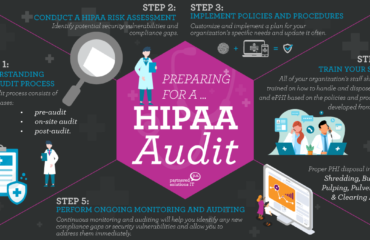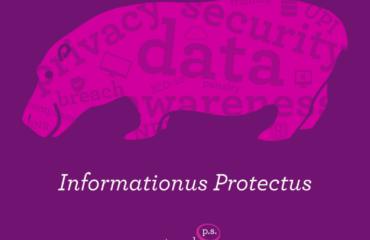
Falling victim to cybercrime is expensive. The recently released Ponemon Institute study on cybercrime in 2016 found that the average annual losses of companies that are victims of a cyberattack exceed $9.5 million. That’s a lot of money, and while larger companies tend to be the targets of cybercriminals more often, even your small business’s network can be at risk. As a network security company in Eugene, Partnered Solutions IT understands that maintaining good network security is absolutely critical, and these are the biggest threats to that security.
Malware
Malware is malicious software that, once downloaded onto your computer, can perform one or more of a variety of different functions. There is ransomware, which locks sensitive information until money is paid to release it; spyware, which records your keystrokes and activity to steal usernames and passwords; and rootkits, which are built to go undetected and grant criminals administrative level access to a network. The best defense against malware is to have up-to-date anti-virus software installed on your computers to quickly identify malware as soon as it is present.
Phishing
Hackers who use phishing schemes rely on some form of social engineering to trick victims into willingly surrendering their passwords or into downloading some form of malware. As the name implies, victims are presented with some form of bait that can take many different forms. It could be a telephone call from someone impersonating a representative of your bank, or it could be a webpage set up to look identical as a trusted page only this one will steal your username and password combination or trick you into downloading a virus.
Some phishing schemes try to scare people into taking their bait. For example, someone could reach out to you impersonating an employee of the IRS and proclaim you owe money in back taxes while directing you to a fake payment site. The best way to combat phishing schemes is to train your employees to spot them and to not give out sensitive information without first verifying the recipient of that information is who they claim to be.
Not Keeping Software Up-to-Date
Software is always being updated to patch for security holes and issues. That’s why it’s extremely important to keep your software up to date and to install patches quickly after they become available. Not doing so or being slow about it opens the door for cybercriminals to exploit the vulnerabilities that patches would fix. Make sure you’re company does a good job of applying software updates quickly and effectively.
Weak Use of Passwords
Passwords are a basic type of defense that are only effective if used correctly. There are many password habits which can be considered problematic. Not using a complex password, using the same username/password combination for multiple places, using the same username/password combination for multiple people, and not routinely changing your password are all examples. The main problem with these bad habits is that your passwords could become compromised without anyone realizing it. That’s why it’s important to change your passwords every 3 to 6 months.
Uneducated Employees
All of the above mentioned network security threats require either complacency or some form of participation from your employees in order for them to work. That’s why making sure your employees are capable of recognizing threats is an extremely important component of your network security. That’s why our network security services include employee training.
If you’re worried about your network’s security, it’s time to call the professionals at Partnered Solutions IT. We can perform a security audit to determine where your vulnerabilities are and use that information to create a mitigation plan to address those issues. Contact us today.







